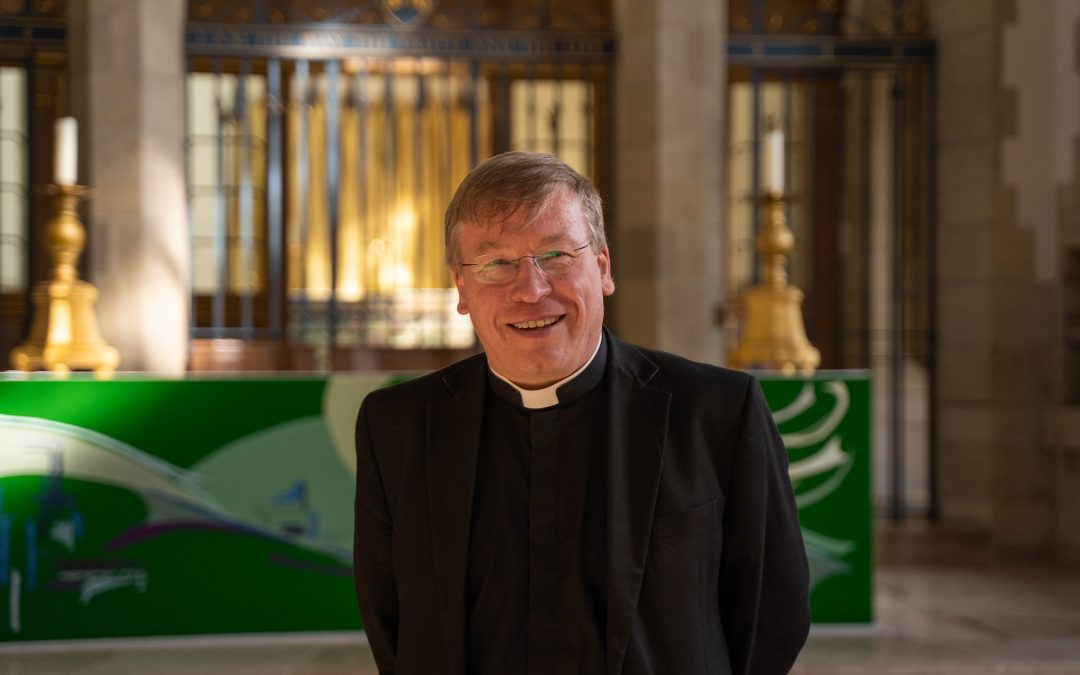The account of Jesus’ healing ten lepers is unique to Luke’s Gospel. This is the only version we have of this story. It has a number of puzzling features and probably the most significant is Jesus saying to the one leper who returned to give thanks to God: “Your faith has made you well.”
Surely Jesus had just healed all ten lepers, so how can it be said of the one alone who returned that his faith has “made him well”? Probably a better translation of these words of Jesus is “your faith has saved you”. A distinction is being made by Jesus between the nine of who had their skin disease relieved, and the tenth who, by his attitude and actions, shows evidence that his life has been transformed.
Luke is keen to tell us that the one who did return was a Samaritan. He drives home this point. This man was a double outcast from normal Jewish society in first century Palestine. He was both a leper and a Samaritan. So his active appreciation is all the more telling and surprising an example.
There is a deep contrast being drawn here between the nine and the one. The nine show that their symptoms have been ameliorated – the healing of their disease has been ameliorative. They were made better but, if you forgive the pun, it seems that its effects were only skin-deep. For the Samaritan leper, though, the change made in him by is far deeper. It was not only ameliorative, but also transformative. His encounter with Jesus had led to a profound change in his life and this was reflected by the change in his attitudes and behaviour.
To draw on another example unique to Luke, the same can be said of little Zacchaeus, the once hated tax collector. His attitudes and behaviour had been completely transformed and when he meets Jesus, climbing a tree to glimpse a sight of him, he then reassures Jesus of the financial restoration he is making to all those he had defrauded.
Harvest Thanksgiving is rooted in a gratitude for God’s generous, creative gifts. In the beginning God creates “out of nothing”. We receive all we have and all we are from his gracious impulse and imaginative genus. We root Harvest in an agricultural physical appreciation for the food and produce we receive. This tangible thanksgiving, though, is sacramental of so much more that we receive from the creative power of God’s Spirit.
Today’s Gospel, I believe, contains the same challenge for us about the nature of our thanksgiving. Is our gratitude deep enough to go beyond the ameliorative, and be transformative in our lives?
Over the coming months, under the leadership of our new Dean Andy, our Cathedral will want to set its direction and priorities for the years to come. New job descriptions have been drawn up for our two new Residentiary Canons and they are now live and in the public domain. We tend to use the language of strategy. This is no more and no less than about where we focus our resources and what we see as our priorities in the years’ ahead. It should be an exciting task and a discerning one. There is a danger for all Christian congregations to be comfortable in the ameliorative, but our call is to be transformative, especially in and amongst the people and institutions that we serve. Discerning strategy will involve us in being honest about what is good, and not so good, where we have resources to make a real difference, but realistic too about not being able to do all that we want at one and the same time.
When we receive Holy Communion we share also in these dynamics of the ameliorative and the transformative. The sacrament we receive is an assurance of Christ’s presence, food provided to sustain us in our journey, medicine for our fragile souls. All of this is Christ’s gracious gift. However, the sacrament we receive is also about our share in Christ’s death and resurrection.
Like those first apostles to whom Jesus’ appeared at Easter we are assured of his peace but also then commissioned to go and tell and speak of the Christ who has and is transforming our lives. The risen Christ given to us in bread and wine is seeking to transform us into his Risen Body, a Church commissioned to go in peace to love and serve the Lord. Like the one Samaritan leper “Get up, go on your way, because your faith has made you well.”
A true Harvest thanksgiving will reap the fruits of the Spirit. This will lead us to be a people who have the confidence to be transformed and be transformative in city, community, diocese. I have total confidence that this as a renewed possibly because I see it in and among God’s people here, and I see it in the leadership of your new Dean. Have confidence to make that strategy of transformative renewal together.
“Get up and go on your way; your faith has made you well.”
Amen.

